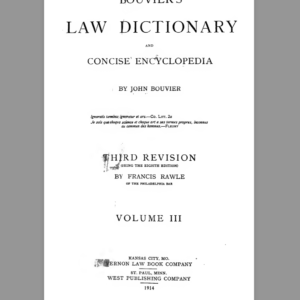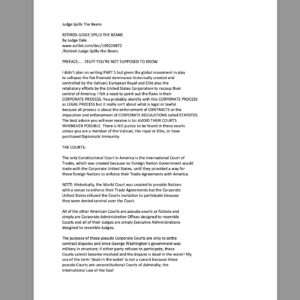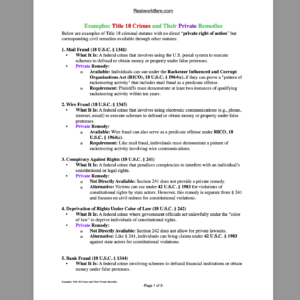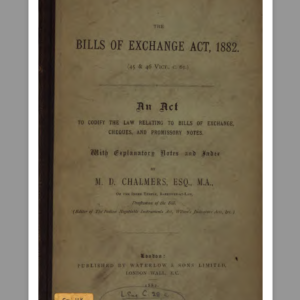Black’s Law Dictionary 1st Edition, pages 196-197:
“CHARTER. v. In mercantile law. To hire or lease a vessel for a voyage. A “chartered” is distinguished from a seeking ship. 7 East, 24.
CHARTER. n. An instrument emanating from the sovereign power, in the nature of a grant, either to the whole nation, or to a class or portion of the people, or to a colony or dependency, and assuring to them certain rights, liberties, or powers. Such was the “Great Charter” or “Magna Charta,” and such also were the charters granted to certain of the English colonies in America. See Story, Const. § 161.
An act of the legislative department of government, creating a corporation, is called the “charter” of the corporation.
In old English law. the term denoted a deed of other written instrument under seal; a conveyance, covenant, contract.
In old Scotch law. A disposition made by a superior to his vassal, for something to be performed or paid by him. 1 Forb. Inst. pt. 2, b. 2, c. 1, tit. 1. A writing which contains the grant or transmission of the federal right to the vassal. Ersk. Inst. 2, 3, 19. ”
Black’s Law Dictionary 2nd Edition, pages 193:
CHARTER, V. In mercantile law. To hire or lease a vessel for a voyage. A “chartered” is distinguished from a “seeking” ship. 7 East, 24.
CHARTER. n. An instrument emanating from the sovereign power, in the nature of a grant, either to the whole nation, or to a class or portion of the people, or to a colony or dependency, and assuring to them certain rights, liberties, or powers. Such was the “Great Charter” or “Magna Charta,” and such also were the charters granted to certain of the English colonies in America. See Story, Const. § 161.
An act ‘Of the legislative department of government, creating a corporation, is called the “charter” of the corporation. Mernck v. Van Santvoord, 34 N. Y. 214; Bent v. Under down, 156 Ind. 516, 60 N. E. 307; Morris & E. R. Co. v. Com’rs, 37 N. J. Law, 237:
In old English law. The term denoted a deed or ‘Other written instrument under seal; a conveyance, covenant; or contract.
In old Scotch law. A disposition made by a superior to his vassal, for something to be performed or paid by him. 1 Forb. Inst. pt. 2, b. 2, c. 1, tit. 1. A writing which contains the grant or transmission of the feudal right to the vassal. Ersk. Inst. 2, 3, 19.
– Charter of Pardon. In English law. An instrument under the great seal, by which a pardon is granted to a man for a felony or other offense. Charter of the forest. See CHARTER DE FORESTA. – Charter rolls. Ancient English records of royal charter, granted between the years 1199 and 1516.
Black’s Law Dictionary 3rd Edition, page 315:
CHARTER, n. An instrument emanating from the sovereign power, in the nature of a grant, either to the whole nation, or to a class or portion of the people, or to a colony or dependency, and assuring to them certain rights, liberties, or powers. Such was the “Great Charter” or “Magna Oharta,” and such also were the charters granted to certain of the English colonies in America. See Story, Const. § 161; 1 Bla. Comm. 108.
A charter differs from a constitution, in that the former is granted by the sovereign, while the latter is established by the people themselves.
An act of a legislature creating a corporaion, or creating and defining the franchise of a corporation. Baker v. Smith, 41 R. I. 2 Bl. Comm. 90.
17, 102 A. 721, 723 ; Merrick v. Van Santvoord, 34 N. Y. 214 ; Bent v. Underdown, 156 Ind. 516, 60 N. E. 307 ; Morris & E. R. Co. v. Com’rs, 37 N. J. Law, 237.
Also a corporation’s constitution or organic law ; Schultz v:. City of Phcenix, 18 Ariz. 35, 156 P. 75, 16 ; C. J. Kubach Co. v. McGuire, 199 Cal. 215, 248 P. 67-6, 677; that is to say, the articles of incorporation taken in connection with the law under which the corporation was organized ; Chicago Open Board of Trade v. Bldg. C0., 136 Ill. App. 606 ; Bentler v. Cincinnati, O. & E. Ry. Co., 180 Ky. 497, 203 S. W. 199, 201, L. R. A. 1918E, 315 ; Fitzgerald v. City of Cleveland, 88 Ohio St. 338, 103 N. E. 512, 513, Ann. Cas. 1915B, 106; In re Hanson’s Estate, 38 S. D. 1, 159 N. W. 3’99, 400. The authority by virtue of which an organized body acts. Ryan v. Witt (Tex. Civ. App.) 173 S. W. 952, 959.
In Old English Law
A deed or other written instrument under seal; a conveyance covenant, or contract. Cowell; Spelman; Co. Litt. 6; 1 Co. 1; F. Moore 687.
In Old Scotch Law
A disposition made by a superior to his vassal, for something to be performed or paid by him. 1 Forb. Inst. pt. 2, b. 2, c. 1, tit. 1. A writing which contains the grant or transmission of the feudal right to the vassal. Ersk. Inst. 2, 3, 19.
Blank Charter
A document given to the agents of the crown in the reign of Richard II, with power to fill up as they pleased.
In General
– Charter of pardon. In English law. An instrument under the great seal, by which a pardon is granted to a man for a felony or other offense.
– Charter of the forest. See Charta de foresta.
– Charter rolls. Ancient English records of royal charter, granted between the years 1199 and 1516.
CHARTER -HOUSE. FormerlyFormerly a convent of Carthusian monks in London ; now a college founded and endowed by Thomas Sutton. The governors of the charter-house are a corporation aggregate without a head, president, or superior, all the members being of equal authority. 3 Steph. Comm. (7th Ed.) 14, 97
CHARTER-LAND. In English law. Otherwise called “book-land.” Property held by deed under certain rents and free services. It, in effect, differs nothing from the free socage lands, and hence have arisen most of the freehold tenants, who hold of particular manors, and owe suit and service to the same. 2 Bl.Comm. 90.
CHARTER-PARTY. A contract by which a ship, or some principal part thereof, is let to a merchant for the conveyance of goods on a determined voyage to one or more places. The Harvey and Henry, 86 F. 656, 30 C. C. A. 330 ; The New York (D. C.) 93 F. 497 ; Vandewater v. The Yankee Blade, 28 Fed. Cas. 980 ; Spring v. Gray, 6 Pet. 151, 8 L. Ed. 352 ; Fish v. Sullivan, 40 La. Ann. 193, 3 So. 730 ; Drinkwater v. The Spartan, 7 Fed. Cas. 1085. A contract of affereightment in writing, by which the owner of a ship lets the whole or a part of her to a merchant, for the whole or a part of her to a merchant, for the conveyance of goods on a particular voyage, in consideration of the payment of freight. 3 Kent, Comm. 201..
A written agreement by which a ship-owner lets the whole or a part to a merchant for the conveyance of goods in consideration of payment of freight. Maude & P. Mer. Shipp. 227; Parker v. Washington Tug & Barge Co., 85 Wash. 575, 148 P. 896, 898. 3 Kent Comm. 201.
The contract by which a ship owner may either let the capacity or burden of the ship, continuing the employment of the owner’s master, crew, and equipments, or may sur- render the entire ship to the charterer, who then provides them himself. The master or part owner may be a char- terer. Civil Code Cal. § 1959; Civil Code Dak. § 1127.
“A charter party may be a contract for the lease of the vessel, or for a special service to be rendered by the owner of the vessel. Where, as is very frequently the case, the shipowner undertakes to carry a cargo, to be provided by the charterer, on a designated voyage, the arrangement is * * * a mere contract of affreightment.” United States v. Hvoslef, 237 U. S.’ 1, 35 S.Ct. 459, 460, 59 L. Ed. 813, Ann. Cas.1916A, 286.
Black’s Law Dictionary 4th Edition, page 298-299:
CHARTER, v. In mercantile law. To hire or lease a vessel for a voyage. Thus, a “chartered” is distinguished from a “seeking” ship. 7 East, 24.
CHARTER, n. An instrument emanating from the sovereign power, in the nature of a grant, either to the whole nation, or to a class or portion of the people, or to a colony or dependency, and assuring to them certain rights, liberties, or powers. Such was the “Great Charter” or “‘Magna Charta,” and such also were the charters granted to certain of the English colonies in America. See Story, Const. § 161; 1 Bla.Comm. 108.
A charter differs from a constitution, in that the former is granted by the sovereign, while the latter is established by the people themselves.
A city’s organic law. Hudson Motor Car Co. v. City of Detroit, 282 Mich. 69, 275 N.W. 770, 773, 113 A.L.R. 1472.
An act of a legislature creating a corporation, or creating and defining the franchise of a corpo- ration. Baker v. Smith, 41 RI. 17, 102 A. 721, 723; Bent v. Underdown, 156 Ind. 516, 60 N.E. 307. Also a corporation’s constitution or organic law; Schultz v. City of Phcenix, 18 Ariz. 35, 156 P. 75, 76; C. J. Kubach Co. v. McGuire, 199 Cal. 215, 248 P. 676, 677; that is to say, the articles of incorporation taken in connection with the law under which the corporation was organized; Chi- cago Open Board of Trade v. Imperial Bldg. Co., 136 Ill.App. 606; In re Hanson’s Estate, 38 S.D. 1, 159 N.W. 399, 400. The authority by virtue of which an organized body acts. Ryan v. Witt, Tex. Civ.App., 173 S.W. 952, 959. A contract between the state and the corporation, between the corpo- ration and the stockholders, and between the stockholders and the state. Bruun v. Cook, 280 Mich. 484, 273 N.W. 774, 777.
In Old English Law
A deed or other written instrument under seal; a conveyance, covenant, or contract. Cowell; Spelman; Co.Litt. 6; 1 Co. 1; F.Moore 687.
In Old Scotch Law
A disposition made by a superior to his vassal, for something to be performed or paid by him. 1 Forb.Inst. pt. 2, b. 2, c. 1, tit. 1. A writing which contains the grant or transmission of the feudal right to the vassal. Ersk.Inst. 2, 3, 19.
Blank Charter
A document given to the agents of the crown in the reign of Richard II. with power to fill up as
298
they pleased.
CharterofPardon
In English law. An instrument under the great seal, by which a pardon is granted to a man for a felony or other
offense.
See Charts de foresta.
Ancient English records of royal charters, granted between the years 1199 and 1516.
CHARTER-HOUSE. Formerly a convent of Car- thusian monks in London; now a college founded and endowed by Thomas Sutton. The governors of the charter-house are a corporation aggregate without a head, president, or superior, all the members being of equal authority. 3 Steph. Comm. (7th Ed.) 14, 97.
CHARTER-LAND. In English law. Otherwise called “book-land.” Property held by deed under certain rents and free services. It, in effect, differs nothing from the free socage lands, and hence have arisen most of the freehold tenants, who hold of particular manors, and owe suit and service to the same. 2 Bl.Comm. 90.
CHARTER-PARTY. A contract by which a ship, or some principal part thereof, is let to a merchant for the conveyance of goods on a determined voyage to one or more places. Fish v. Sullivan, 40 La.Ann. 193, 3 So. 730; Vang v. Jones & Laugh- lin Steel Corporation, D.C.Pa., 7 F.Supp. 475, 478.
A specific and express contract by which the owner lets a vessel or some particular part thereof to another person for a specified time or use. Jones & Laughlin Steel Corpo- ration v. Vang, C.C.A.Pa., 73 F.2d 88, 91.
A written agreement by which a ship-owner lets the whole or a part to a merchant for the conveyance of goods in consideration of payment of freight. Maude & P. Mer. Shipp. 227; Parker v. Washington Tug & Barge Co., 85 Wash. 575, 148 P. 896, 898. 3 Kent Comm. 201.
The contract by which a ship owner may either let the capacity or burden of the ship, continuing the employment of the owner’s master, crew, and equipments, or may sur- render the entire ship to the charterer, who then provides them himself. The master or part owner may be a char- terer. Civil Code Cal. § 1959; Civil Code Dak. § 1127.
“A charter party may be a contract for the lease of the vessel, or for a special service to be rendered by the owner of the vessel. Where, as is very frequently the case, the shipowner undertakes to carry a cargo, to be provided by the charterer, on a designated voyage, the arrangement is * * * a mere contract of affreightment.” United States v. Hvoslef, 237 U. S.’ 1, 35 S.Ct. 459, 460, 59 L. Ed. 813, Ann. Cas.1916A, 286.
Black’s Law Dictionary 7th Edition, page 228-229:
charter, n. 1. An instrument by which a govern mental entity (such as a city or state) grants rights, liberties, or powers to its citizens. 2. Hist. The writing that accompanies a livery of seisin. • Rather than being an operative ele ment of transfer, the writing was merely evidence of it. 3. A legislative act that creates a business or defines a corporate franchise. Cf. ARTICLES OF INCORPORATION.
bank charter. A document issued by a governmental authority permitting a bank to conduct business.
corporate charter. 1. CERTIFICATE OF INCOR· PORATION ( 1 ) . 2. A document that one files with the secretary of state upon incorporating a business. • The corporate charter is often the articles of incorporation.
home-rule charter. A municipal corporation’s organizational plan or framework, analogous to a constitution, drawn by the municipality itself and adopted by popular vote of the citizenry.
municipal charter. A charter by which a municipality is constituted.
“Municipal Charters. – The charter issued to a munici· pality is in the nature of a constitution to it, being superior to all ordinances enacted by that municipality, though inferior in rank to all State laws of every kind. ” Frank Hall Childs, Where and How to Find the Law 8 (1922).
4. The leasing or hiring of an airplane, ship, or other vessel.
bareboat charter. A charter under which the shipowner provides the ship, and the charterer provides the personnel, insurance, and other materials necessary to operate it. – Also termed demise charter.
catch-time charter. See time charter.
demise charter. A charter under which the shipowner surrenders possession and control of the vessel to the charterer, who then succeeds to many of the shipowner’s rights and obligations. • The charterer is known either as a demise charterer or as an owner pro hac vice.
gross charter. A charter under which the shipowner provides all personnel and pays all expenses.
time charter. A charter for a specified peri od, rather than for a specific task or voyage; a charter under which the shipowner continues to manage and control the vessel, but the charterer designates the ports of call and the cargo carried. • Each party bears the ex penses related to its functions and for any damage it causes. – Also termed catch-time charter.
voyage charter. A charter under which the shipowner provides a ship and crew, and places them at the disposal of the charterer for the carriage of cargo to a designated port. • The voyage charterer may lease the entire vessel for a voyage or series of voyages – or may (by “space charter”) lease only part of the vessel.
charter, vb. 1. To establish or grant by charter <charter a bank>. 2. To hire or rent for tem porary use < charter a boat > .
charter agreement. See CHARTERPARTY. chartered life underwriter. See UNDERWRIT
ER.
chartered ship. See SHIP.
charter-land. Hist. See BOOKLAND.
charter of affreightment. See AFFREIGHT MENT .
charterparty. A contract by which a ship, or a principal part of it, is leased by the owner, esp. to a merchant for the conveyance of goods on a predetermined voyage to one or more places; a special contract between the shipowner and charterer, esp. for the carriage of goods at sea. – Also written charter-party; charter par ty. – Also termed charter agreement.
“Charter partie (charta partita) is nothing but that which we call a paire of indentures, conteining the covenants and agreements made betweene merchants, or sea faring men touching their marine affaires . ” John Cowell, The Interpreter (1607).
“The instrument by which a vessel is leased is a charter party. The term is derived from charta partita, i.e., a deed of writing divided; in earlier times the charta parti ta, like the indenture agreement, was prepared in two parts, the ship owner retaining one part and the charterer the other . . While a charter party need not be in writing, most charters today are detailed written docu ments drawn to accommodate the particular needs of shipper and carrier in a certain type of trade or com merce.” Frank L. Maraist, Admiralty in a Nutshell 44-45 (3d ed. 1996).
Black’s Law Dictionary 8th Edition, page 705-708:
home-rule charter.A local government’s organizational plan or framework, analogous to a constitution, drawn by the municipality itself and adopted by popular vote of the citizenry. See HOME RULE. [Cases: Municipal Cor-porations 65. C.J.S. Municipal Corporations §§ 122, 140–141, 143.]
3. A governmental act that creates a business or defines a corporate franchise; also, the document evidencing this act.
bank charter.A document issued by a governmental authority permitting a bank to conduct business. [Cases: Banks and Banking 5–6. C.J.S. Banks and Banking §§ 8, 15–18.]
corporate charter. 1.CERTIFICATE OF INCORPORATION(1).2. A document that one files with the secretary of state upon incorporating a business. • The corporate charter is often the articles of incorporation. [Cases: Corporations 18. C.J.S. Corporations §§ 26, 33–35, 41, 559.]
special charter.Hist. A legislative act creating a private corporation as opposed to a public, charitable, or educa-tional corporation. • Special charters were common until the 19th century, when legislatures enacted general incorporation laws that allowed private corporations to be formed without legislative action.
4. The organic law of an organization; loosely, the highest law of any entity. Cf. ARTICLES OF INCORPO-RATION. 5. A governing document granting authority or recognition from a parent organization to a subordinate or constituent organization, such as a local affiliate or chapter, organized under the first organization’s authority; or the instrument granting such authority or recognition. See governing document under DOCUMENT(1).6.Hist. The writing that accompanies a livery of seisin. • Rather than being an operative element of transfer, the writing was merely evidence of it. 7. The leasing or hiring of an airplane, ship, or other vessel. [Cases: Shipping 34–58. C.J.S. Shipping §§ 74–146, 148, 379.] 8.CHARTERPARTY.
bareboat charter.A charter under which the shipowner surrenders possession and control of the vessel to the charterer, who then succeeds to many of the shipowner’s rights and obligations. • The charterer, who provides the personnel, insurance, and other materials necessary to operate the vessel, is known either as a demise charterer or as an owner pro hac vice. — Also termed demise charter. [Cases: Shipping 41. C.J.S. Shipping §§ 92–101.]
“The ‘demise’ or ‘bareboat’ charter is conceptually the easiest to understand. The charterer takes possession and operates the ship during the period of the charter as though the vessel belonged to the charterer. The bareboat charter is thus analogous to the driver who leases a car for a specified period or a tenant who rents a house for a term of years. The charterer provides the vessel’s master and crew (much as the lessee–driver personally drives the car) and pays the operating expenses (much as the lessee–driver buys the gasoline).” David W. Robertson, Steven F. Friedell & Michael F. Sturley, Admiralty and Maritime Law in the United States 371–72 (2001).
demise charter.See bareboat charter.
gross charter.A charter under which the shipowner provides all personnel and pays all expenses.
slot charter.A charter for one or more slots on a container vessel. • Each slot accommodates a 20-foot container. A slot charter is a form of vessel-sharing agreement. Cf. space charter.
“Slot charters (and vessel-sharing agreements) have become increasingly popular in the container trades, as they enable two or more carriers to combine their capacities and offer more frequent service on their routes. If three carriers all serve the New York to Rotterdam route, for example, and each devotes one vessel to the route every three weeks, they can implicitly (with slot charters) join forces and each offer weekly service.” David W. Robertson, Steven F. Friedell & Michael F. Sturley, Admiralty and Maritime Law in the United States 377 (2001).
space charter.A charter for a part of a vessel’s capacity, such as a specified hold or deck or a specified part of the vessel’s carrying capacity. • A space charter is a form of vessel-sharing agreement. Cf. slot charter.
time charter.A charter for a specified period, rather than for a specific task or voyage; a charter under which the shipowner continues to manage and control the vessel, but the charterer designates the ports of call and the cargo carried. • Each party bears the expenses related to its functions and for any damage it causes. Cf. voyage charter. [Cases: Shipping 40. C.J.S. Shipping §§ 92–101.]
voyage charter.A charter under which the shipowner provides a ship and crew, and places them at the disposal of the charterer for the carriage of cargo to a designated port. • The voyage charterer may lease the entire vessel for a voyage or series of voyages — or may (by “space charter”) lease only part of the vessel. Cf. time charter. [Cases: Shipping 41. C.J.S. Shipping §§ 92–101.]
“The fundamental difference between voyage and time charters is how the freight or ‘charter hire’ is calculated. A voyage charter party specifies the amount due for carrying a specified cargo on a specific voyage (or series of voyages), regardless of how long a particular voyage takes. A time charter party specifies the amount due for each day that the vessel is ‘on hire,’ regardless of how many voyages are completed.” David W. Robertson, Steven F. Friedell & Michael F. Sturley, Admiralty and Maritime Law in the United States 377 (2001).
charter,vb.1. To establish or grant by charter <charter a bank>.2. To hire or rent for temporary use <charter a boat>.
CHARTER AGREEMENT
charter agreement.See CHARTERPARTY. CHARTERED LIFE UNDERWRITER chartered life underwriter.See UNDERWRITER. CHARTERED SHIP
chartered ship.See SHIP.
CHARTER-LAND
charter-land.Hist. See BOOKLAND. CHARTER MEMBER
charter member.See MEMBER.
CHARTER OF AFFREIGHTMENT
charter of affreightment.See AFFREIGHTMENT. CHARTERPARTY
charterparty. A contract by which a ship, or a principal part of it, is leased by the owner, esp. to a merchant for the conveyance of goods on a predetermined voyage to one or more places or for a specified period of time; a special contract between the shipowner and charterer, esp. for the carriage of goods at sea. — Often shortened to charter. — Also written charter-party; charter party. — Also termed charter agreement. [Cases: Shipping 37. C.J.S. Shipping §§ 76–77.]
“Charter partie (charta partita) is nothing but that which we call a paire of indentures, conteining the covenants and agreements made betweene merchants, or sea faring men touching their marine affaires.” John Cowell, The Interpreter (1607).
“The instrument by which a vessel is leased is a charter party. The term is derived from charta partita, i.e., a deed of writing divided; in earlier times the charta partita, like the indenture agreement, was prepared in two parts, the ship owner retaining one part and the charterer the other…. While a charter party need not be in writing, most charters today are detailed written documents drawn to accommodate the particular needs of shipper and carrier in a certain type of trade or commerce.” Frank L. Maraist, Admiralty in a Nutshell 44–45 (3d ed. 1996).












Recent Comments